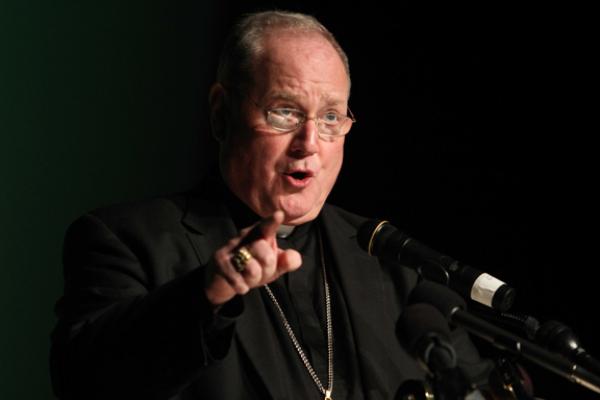When I stepped back and really thought about what I was experiencing on election night, I started thinking about the night of April 4, 1968, just hours after Martin Luther King, Jr. was assassinated. Having not yet been born, I thought about the coverage of it that I’ve seen. About how Robert Kennedy found himself in front of a crowd of supporters for a presidential campaign rally in Indianapolis. Many there that night were black and hadn’t heard the news of King’s death. As he did with most difficult topics, Kennedy laid it all out there. The crowd gasped and screamed and cried. Kennedy said he understood the anger and hate each of the men and women there that night would probably feel. After all, a white man had also killed his brother.
“What we need in the United States is not division,” Kennedy told the crowd. “What we need in the United States is not hatred. What we need in the United States is not violence and lawlessness, but is love and wisdom and compassion toward one another. A feeling of justice toward those who still suffer within our country.”
Christian Post reports:
When the new members of Congress are sworn in on Jan. 3, the institution that once mirrored the nation's Protestant Christian dominance will look slightly more like the religiously diverse nation it represents. The new Senate will seat a Buddhist member for the first time and the House of Representatives will have its first Hindu member.
Rep. Mazie Hirono (D-Hawaii), who currently serves in the House of Representatives, won her Senate race last week and will be sworn in as the Senate's first Buddhist. Hirono's House seat will be filled by Tulsi Gabbard, who will become the first Hindu in Congress. Hirono will also be the first Asian-American female and the first person born in Japan to be elected to the U.S. Senate.
Read more here.
Eric Sapp writes for The Huffington Post:
In recent years, there has been a trend in politics away from any mention of the poor. Republicans never really paid them any mind, but Democrats have been convinced they should not make any mention of the poor, and instead, focus exclusively on the middle class. The decision to stop talking about the poor was, for Democrats, based on polling data. Pollsters have tested traditional progressive language about the "poor, vulnerable, and needy" and seen that voters don't have a very high opinion of those groups. Furthermore, polling shows that most voters want to self-identify as "middle class."
Because of all of this, many Democrats have reached the conclusion that mentioning the poor or openly championing policies that explicitly benefit them is a political loser. This conclusion has very dangerous policy and strategic implications (especially with the looming sequestration debate) and will ultimately box Democratic leaders into a corner where they have no choice but to sacrifice programs that struggling American families depend on the most. Thankfully, in this case, we don't have to choose between doing what is right and what works politically.
Read more here.
We were walking up the beach, on the sand as the tide moved out toward the ocean. I was holding Zeke's hand, talking with him about sea things. "I didn't know jellyfish swam this close to the shore during the spring," he said in 5-year-old wonderment. "I bet that drift wood is as old as The Old Man and the Sea. I think a horseshoe crab's blood can be used to treat cancer."
"Look," I said.
"What is it, Dad?" he asked.
I picked up a shell out of the deep, hot sand and held it in my open hand.
The Guardian reports:
For Americans concerned about the environment, disaster was avoided on Tuesday. President Obama – with his somewhat lackluster record, if decidedly more exalted rhetoric, on global warming – defeated the Republican challenger who had vowed to gut federal emissions standards, and kill loan programs and tax breaks for green energy companies.
But activists say that it would be wrong to read the election as a stamp of approval for four more years of business as usual. They argue that voters have sent a clear signal that they want more aggressive action on the environment during the president's second term.
Read more here.
Stephen Prothero writes for the CNN Belief Blog:
It’s demography, stupid!” is the new mantra for analyzing the 2012 election, in which African Americans, Asian Americans and Latinos cast their votes in overwhelming numbers for President Obama.
But religious diversity was another key theme. How so? Let me count the ways.
1. The first Hindu in the House
Thanks to Hawaii’s 2d congressional district, a Hindu has been elected for the first time to the House of Representatives. Tulsi Gabbard, a Democrat who was born in American Samoa, served in the Hawaii National Guard and was deployed to Baghdad and Kuwait, crushed Republican Kawaki Crowley with over three-quarters of the votes. Gabbard is a Vaishnava Hindu, which means she worships Vishnu. The key scripture in her Hindu tradition is the Bhagavad Gita, a meditation on duty in the face of war....
Read more here.
BALTIMORE — After sweeping setbacks to the hierarchy’s agenda on Election Day, New York Cardinal Timothy Dolan on Monday told U.S. Catholic bishops that they must now examine their own failings, confess their sins and reform themselves if they hope to impact the wider culture.
“That’s the way we become channels of a truly effective transformation of the world, through our own witness of a repentant heart,” Dolan, president of the U.S. Conference of Catholic Bishops, told the 250 bishops gathered here for their annual meeting.
“The premier answer to the question ‘What’s wrong with the world?’ is not politics, the economy, secularism, sectarianism, globalization, or global warming … none of these, as significant as they are,” Dolan said, citing many of the issues that have become favorite targets of the hierarchy.


